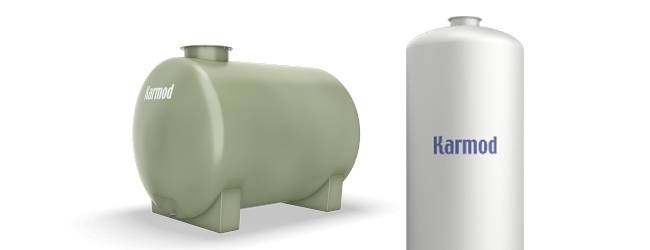
Polyesters are used as raw materials in almost all manufacturing industries today. Currently, polyesters are primarily produced in the textile sector. However, they are used in various other applications, from bottles to insulation materials and even some parts of automobiles. Consequently, they have been utilized in the production of water tanks. When polyester water tanks are produced in accordance with international standards, you can safely store food and water in them.
Polyester is a category of polymers. While polyesters exist in nature, the term "polyester" generally refers to a broad family of synthetic polyesters that include all polyethylene terephthalate and polycarbonate-containing polymers. It is one of the most important thermoplastic polyesters.
If we look at its chemical structure, we can see that it is linked by crosslinks. The English equivalent of polyester is "polyester," which, when examined, has the syllable "ester." This syllable, "ester," is a chemical compound. Polyester is composed of this chemical compound. In more chemical terms, they are condensation polymers containing ester functional groups within their main chains. The average polymerization degree of regular polyester fibers is about 100, and hence their average molecular weights are around 20,000.
How Are Polyester Water Tanks Manufactured?
Looking back in the history of polyester, it was the result of the search for fiber due to cotton's inability to meet the needs of the industry. Initially, it was mostly used in the textile sector, but later, it started being used in almost all manufacturing sectors. As you can see, needs can give birth to new raw materials.
The first synthetic polyester, glycerin phthalate, was used during World War I to obtain waterproof properties. Natural polyesters have been known since the 1830s.
Now, onto the water tanks. Water tanks are devices in which a liquid is stored, and its discharge is provided when needed. These devices must be suitable for the liquid they contain. Therefore, Karmod Plastics always uses quality materials when producing them.
In addition, there is also an on-site installation option for polyester water tanks. Polyester water tanks can be produced without being dependent on specific molds. As a result, it is possible to enter challenging factories and install water tanks in the desired location.
Polyester fibers have a hydrophobic character. Due to the difficulty of water penetrating the fibers, polyester water tanks are not affected by cold or hot water. Moreover, polyester fibers generally exhibit good resistance to acids.
Apart from these, there are also polyethylene water tanks that are most suitable for food storage. For questions about polyethylene, you can refer to our blog post "What Is Polyethylene?" Both types of water tanks are available in almost any size to meet various needs. First-rate raw materials are used in their production. For now, we've come to the end of this article. Stay well.


 EN
EN
 DE
DE
 FR
FR
 IT
IT
 ES
ES
 PT
PT
 RU
RU
 AR
AR
 BG
BG
 SR
SR
 GR
GR
 SQ
SQ
 RO
RO
 PL
PL
 HU
HU
 CZ
CZ
 HR
HR
 AZ
AZ
 GE
GE
 AM
AM
 IL
IL